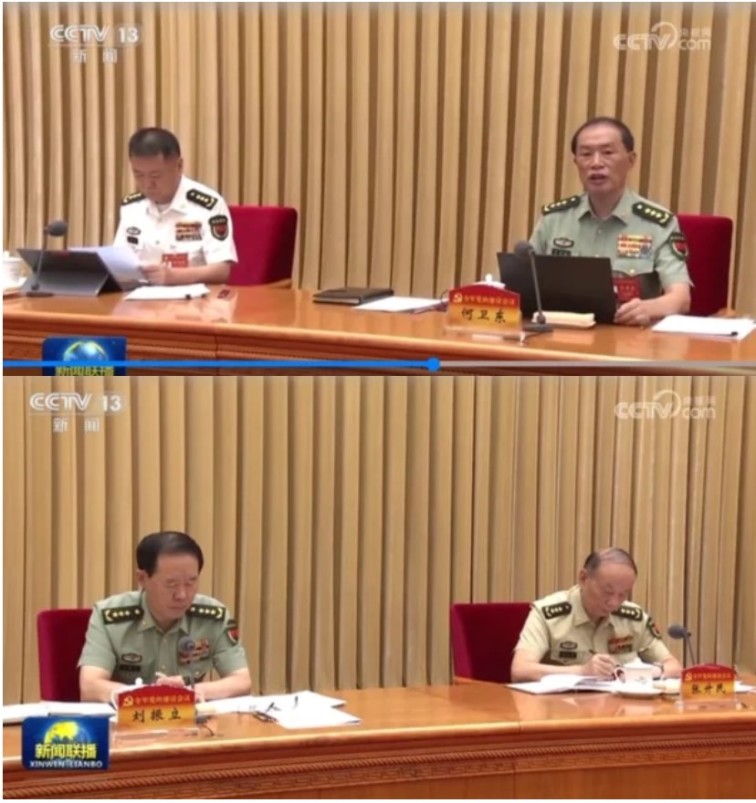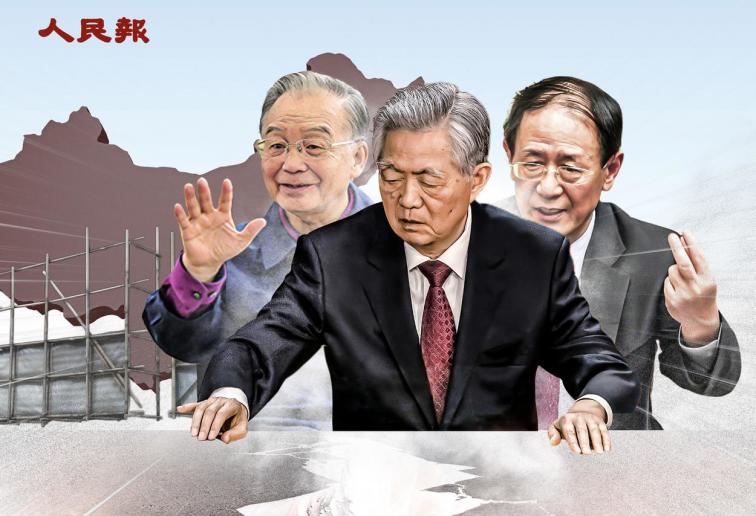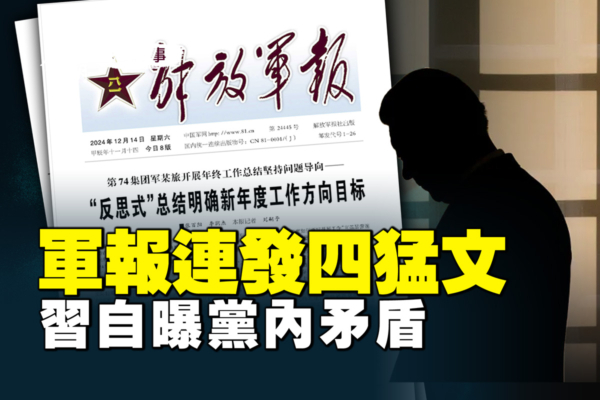Dark clouds hang over Tiananmen Square in Beijing. (Lintao Zhang/Getty Images)
[People News] Overseas multimedia sources have revealed that Xi Jinping and senior CCP elders have reached a significant agreement known as the “Xishan Consensus.” Meanwhile, on June 26, U.S. President Donald Trump announced that the U.S. had signed a trade agreement with China on June 25. A White House official told the English-language Dajiyuan: “We’re starting to open up China—something that’s never truly happened before.” Separately, Wang Jizhou, host of the show President of Yihe Capital, recently predicted Xi Jinping’s fate using Chinese metaphysics, claiming that Xi’s life may be in danger in 2025.
Xi Jinping and CCP Elders Reach “Xishan Consensus”
According to Hope of the People TV (Hope Radio), on June 27, political commentator "Old Deng" cited a domestic source stating that Xi Jinping and senior CCP elders have reached a major agreement referred to as the “Four-Point Xishan Consensus.”
Notably, 21 days earlier on June 6, overseas independent scholar Wu Zuolai also mentioned in a leak allegedly originating from Zhongnanhai that a “Xishan Consensus” was taking shape.
Observers noticed strong similarities in both accounts.
In his June 27 program, Old Deng said the origin of the name “Xishan Consensus” remains unclear, but speculated that it may be tied to the Xishan area of Beijing, home to many senior CCP leaders and elders.
He questioned whether a high-level meeting was held in Xishan, giving rise to the name “Four-Point Xishan Consensus.”
According to Old Deng’s report, the consensus between Xi and the elders includes four core points, intended to address the internal and external crises facing the CCP:
-
Preserve Stability; Xi’s Position as General Secretary to Be Decided Later
Elders asked Xi to prioritise the broader situation and temporarily retain his post as General Secretary. His final fate will be determined at the CCP’s 20th Fourth Plenary Session. -
Establish a “Central Advisory Group”
This group will include elders like Hu Jintao, Wen Jiabao, and Li Ruihuan, and will be authorised to convene and attend Politburo Standing Committee meetings. -
Reinforce Collective Leadership
Major foreign and domestic policy decisions must be jointly decided by the Politburo Standing Committee and the Advisory Group, ending Xi’s one-man rule. -
Adjust Foreign Policy: Reconcile with the U.S. and Distance from Russia
The “Pro-America, Anti-Russia” strategy aims to promptly reach a trade agreement with the U.S. to rescue the economy, while cooling relations with Russia.
It is worth noting that this so-called “Xishan Consensus” was not originally revealed by Old Deng.
Independent scholar Wu Zuolai had already posted about it on June 6 on X (formerly Twitter), citing domestic leaks under the title: “Xishan Consensus Forming: Pro-America, Anti-Russia Strategy is Irreversible.”
He noted that a three-day secret Politburo Standing Committee meeting had been held, in which senior elders submitted written opinions that contributed to forming the Xishan Consensus:
-
Xi Should Preserve Stability and Remain General Secretary Until Normal Succession
-
Reinforce Collective Leadership; No More Autocratic Decisions
-
Promote Reconciliation with the U.S.; Keep Distance from Russia
Wu Zuolai also pointed out that the CCP’s recent low-profile receptions of Putin’s envoy and the Belarusian president were collective decisions.
Comparing both leaks shows three consistent key points:
-
Xi Jinping temporarily retains the General Secretary position.
-
Major domestic and foreign policies must now be decided collectively, ending autocratic rule.
-
A diplomatic pivot toward reconciliation with the U.S. and distancing from Russia.
Due to the CCP’s secretive governance, the authenticity of this information cannot be independently verified.
Trump Announces: Trade Deal Signed with China
It is worth noting that signs of improving U.S.-China relations have recently emerged.
According to Dajiyuan, U.S. President Trump announced on June 26 that a trade agreement was signed with China on the 25th, although no details were disclosed.
A White House official confirmed to Dajiyuan that both sides had reached a supplemental agreement, stating: “We’re beginning to open up China—something that has never really happened before.”
The Chinese government has yet to officially announce the deal, merely republishing Trump’s statement with extremely low-key coverage, leading to speculation that China may have made major concessions in the negotiations.
Xi Jinping and the CCP: Facing Five “Deadly Gates”?
As for the first point—Xi retaining his General Secretary position—there may be deeper implications.
A folk prophecy in China claims that the CCP regime began and will end with a leader born in the Year of the Snake. Both Mao Zedong and Xi Jinping were born in Snake years. According to this theory, the fate of the CCP regime will end with Xi’s political downfall.
Thus, the consensus among the CCP leadership to allow Xi to remain as the Party’s top figure may be seen by some as destiny at work.
In a recent livestream, Wang Jizhou—host of the Yihe Capital President program—used “Tieban Shenshu” (an ancient Chinese numerological method) to predict Xi Jinping’s fate.
Wang, who lived in Beijing during the Qigong craze of the 1980s and 90s, was exposed to many mystical figures and studied the I Ching, Eight Trigrams, and metaphysics.
Using the Tiepuzhi Life Analysis system and Xi’s birth chart, Wang calculated that Xi may face life-threatening danger in 2025. Specifically, he identified five high-risk dates: May 20, July 27, August 4, December 24, and January 1, 2026.
With May 20 already past, observers are waiting to see what happens on the remaining four dates. Are Xi Jinping and the CCP regime approaching their final “deadly gates”?
(People News original)











News magazine bootstrap themes!
I like this themes, fast loading and look profesional
Thank you Carlos!
You're welcome!
Please support me with give positive rating!
Yes Sure!